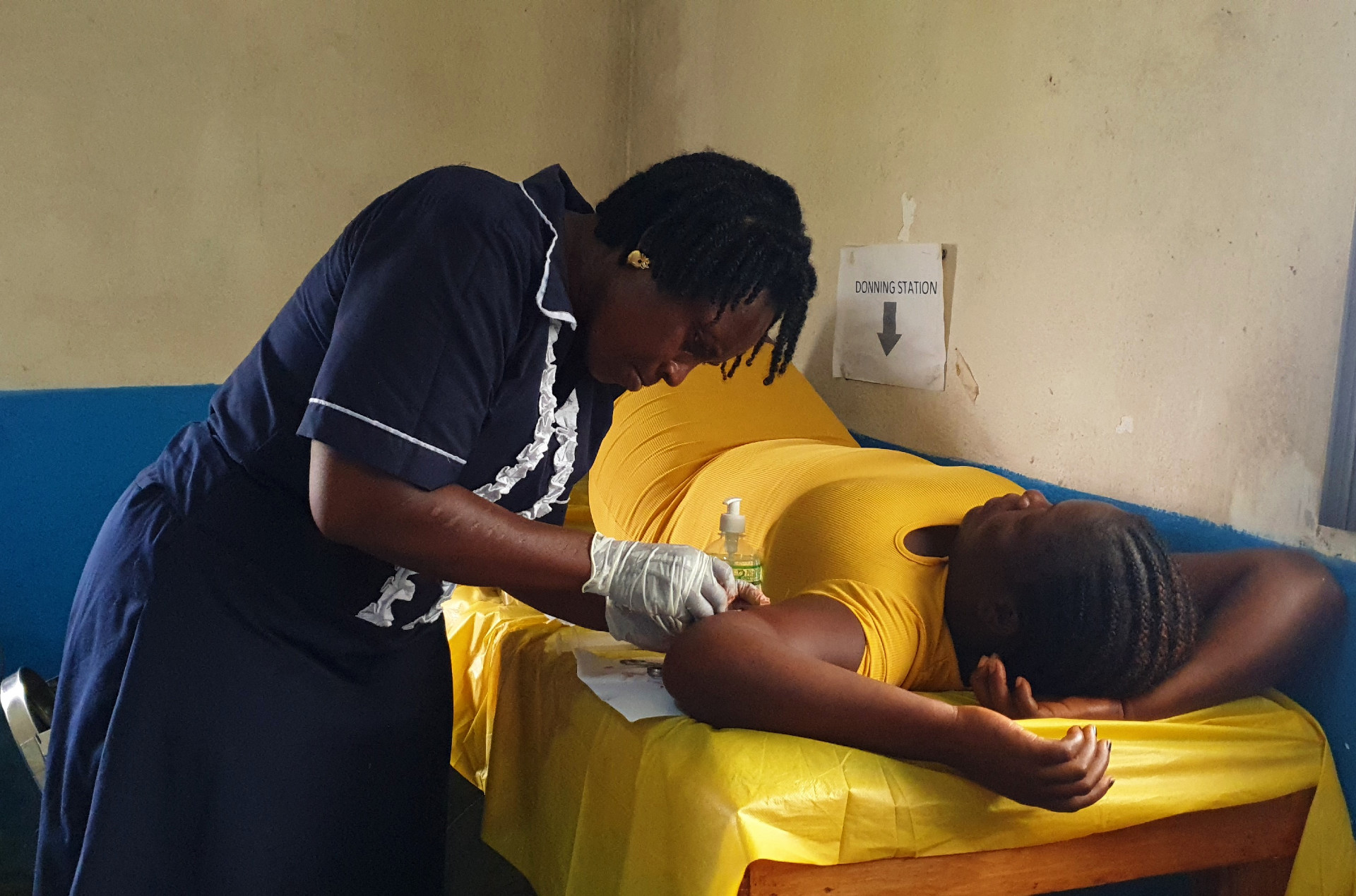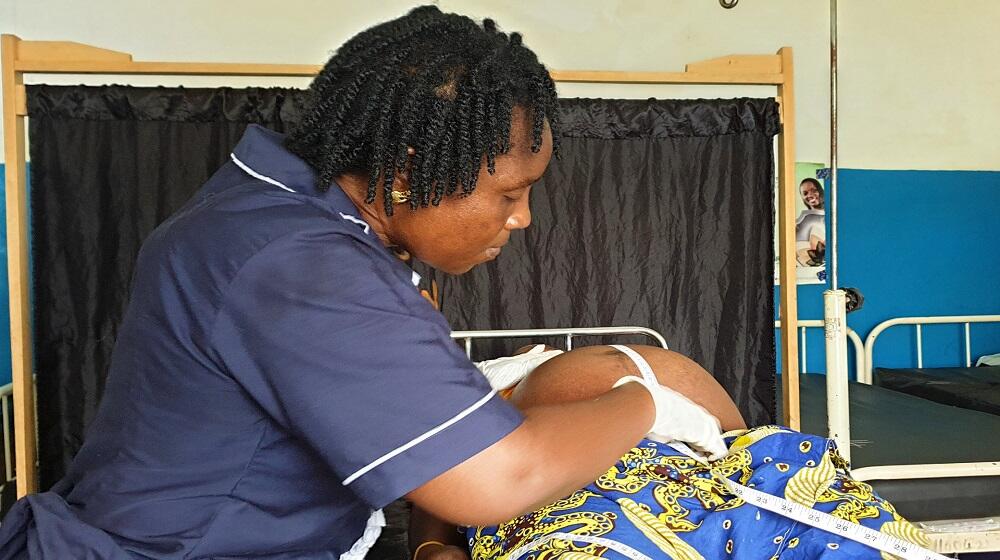BENSONVILLE, Liberia - “There is still so much work to be done to improve Liberia’s maternal and newborn health situation. While there has been an improvement in antenatal visits and facility deliveries by pregnant women, there is a lack of the workforce to attend to the needs of these women adequately,” says Deddeh Tamba, a midwife at the Bensonville Hospital, Montserrado County.
Ms. Tamba states that midwives remain among Liberia's least-paid health sector cadre. “We deliver more than babies. Midwives are responsible for antenatal, intrapartum, and postpartum care for women. We attend to women who want to plan their pregnancies. We step in and attend to inpatients when nurses are not around. Yet we receive less pay than other health professionals in Liberia,” says Ms. Tamba.

However, Ms. Tamba says the limited incentives do not dampen her passion and commitment to ensuring quality care for pregnant women and their newborns.
“I became a midwife not for financial or material gains but because of my passion for the profession. For example, I spend more than 25 percent of my monthly salary on transportation alone to commute between my residence and the health facility. But I care less as helping women to deliver babies safely brings me joy and a complete sense of fulfillment.
The need for more midwives
It is estimated that Liberia has only one midwife or nurse to about 2000 population, making it one of the countries with a low midwife-to-population ratio. And most of these midwives or nurses work in urban areas - compounding the situation for rural women. Limited incentives and opportunities for career growth have been one of the driving forces behind the concentration of skilled birth attendants in urban communities in Liberia.
Ms. Tamba wants Liberia to prioritize the training and retention of midwives within health policies, budgets, and programmes.
While there has been an increase in births assisted by skilled attendants, from 61 percent in 2013 to 84 percent in 2019-20, mothers and newborns remain at risk in Liberia as approximately 742 mothers die of causes related to pregnancy and childbirth for every 100,000 live births because of limited access to either basic midwifery or emergency obstetric care, such as cesarean sections. The lack of trained midwives in most rural health facilities and the long distances women travel to access care hinders the country’s efforts to reduce maternal and newborn mortality.
Investing in midwives
Working in collaboration with the Ministry of Health, UNFPA, the United Nations Population Fund is supporting the training of midwives in Liberia.
“I commend the important work of midwives. Midwives deliver – and not only babies. They save lives and promote good health in society. They are an essential workforce in an effective healthcare system,” says UNFPA Liberia Resident Representative Bidisha Pillai.
The Fund has supported the Liberia Board of Nursing and Midwifery to develop a direct-entry curriculum and a bridging programme for existing midwives at the bachelor's degree level to ensure a clear career pathway for midwives.
The UN Sexual and Reproductive Health Agency also supports regular capacity building for the Midwifery Association to embark on a midwifery-led emergency obstetric and newborn care (EmONC) mentorship program.


